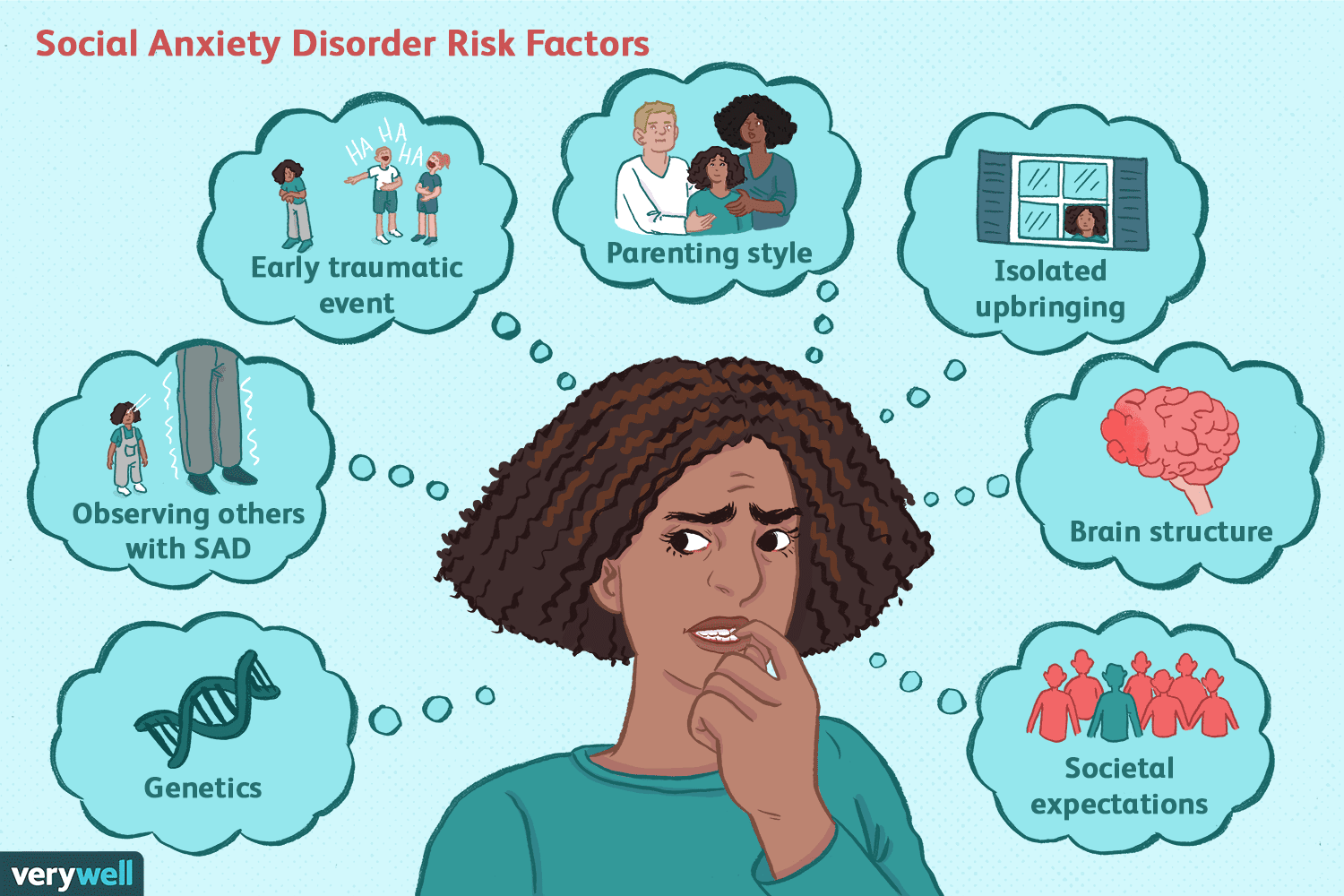Physicians and researchers consider social anxiety disorder and phobias to be a chronic mental health condition that a person develops when he feels that he has suddenly become the center of attention, or that he feels anxiety and pain in his stomach in some situations.
The person with social anxiety disorder suffers from fear, anxiety and avoidance of others, in a way that affects and impedes all life activities, according to the medical website nimh.nih, including mood and behavioral symptoms of social phobia, such as: fear of being judged, intense fear of dealing with strangers, and fear of being noticed. others to worry about you.
Genetic factors tend to cause this disease, as the affected person feels excessive activity in the amygdala, the part of the brain responsible for feeling danger.
The disorder is one of the most common mental disorders, and usually begins in the middle of adolescence, and factors that increase the risk of infection include: family history of anxiety disorders, and negative childhood experiences, such as exposure to ridicule, bullying, rejection, and others. It also affects children who are shy, reluctant, or introverted, and they are more vulnerable.
Among the complications of social phobia disorder, self-image disorder, and extreme sensitivity to criticism. Poor social skills, isolation, and academic and career disruption.
The two most popular treatments are medications and psychotherapy, and they can be used together. Psychotherapy can be done through individual sessions or social sessions, while pharmacotherapy uses selective serotonin reuptake inhibitors (SSRIs), such as: paroxetine (Paxil) or sertraline ( Zoloft), serotonin and norepinephrine reuptake inhibitors (SNRIs), venlafaxine (Effexor XR), and other medications, such as other antidepressants, anti-anxiety medications, or beta-blockers.
To reduce the side effects, the doctor prescribes a few doses at first, then gradually increases the doses, and the results of treatment may be delayed for several weeks, and it is necessary to provide self-care and home procedures for treatment, but these procedures do not dispense with seeking specialized care, but they are additional procedures, and a means of support Self-care includes: communicating with people you feel comfortable with, exercising or physical activities, getting enough sleep, and eating a healthy diet.

